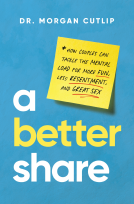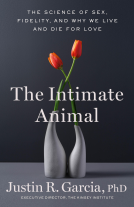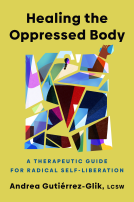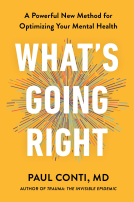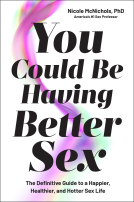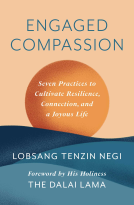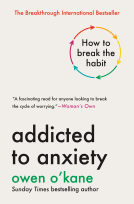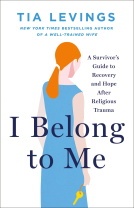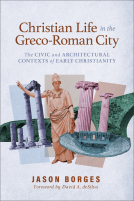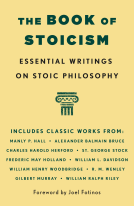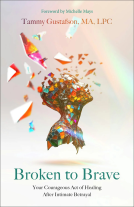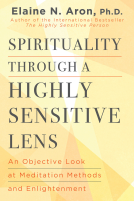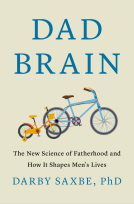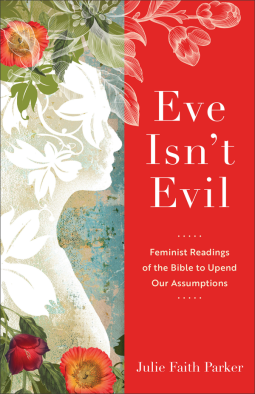
Eve Isn't Evil
Feminist Readings of the Bible to Upend Our Assumptions
by Julie Faith Parker
This title was previously available on NetGalley and is now archived.
Send NetGalley books directly to your Kindle or Kindle app
1
To read on a Kindle or Kindle app, please add kindle@netgalley.com as an approved email address to receive files in your Amazon account. Click here for step-by-step instructions.
2
Also find your Kindle email address within your Amazon account, and enter it here.
Pub Date Sep 12 2023 | Archive Date Sep 26 2023
Baker Academic & Brazos Press | Baker Academic
Talking about this book? Use #EveIsntEvil #NetGalley. More hashtag tips!
Description
"Tackles scripture from a broad-thinking, feminist perspective. . . . Smart and impressive."--Publishers Weekly
One reason the Bible has endured for millennia is its ability to reach our common humanness and give uplifting insights about struggle, resilience, and hope. Intertwining academic knowledge and candid, personal, and sometimes humorous stories, Julie Faith Parker helps readers engage biblical texts with both mind and heart--to learn the Bible's stories, explore theological ideas, question common assumptions, develop interpretive skills, and grow in their own faith.
The title chapter demonstrates how feminism interprets the Bible with fresh eyes and offers empowering insights, an approach used in the rest of the book. In each chapter, Parker reads biblical texts through a feminist lens. The book discusses both neglected and well-known Old Testament passages with one chapter on the New Testament. Parker's reflections show how vital our readings of the Bible can be as a source of strength, guidance, and joyful defiance.
Additional features include questions for conversation or reflection and an overview of the entire Bible, summarizing each book in one line.
Advance Praise
“An amazing book of power, insight, and challenge. Scholarship and communication embrace faith and feminism to yield refreshing alternatives to interpretations both traditional and contemporary. Julie Faith Parker inspires compelling conversations that illuminate Eve and all her descendants.”—Phyllis Trible, Baldwin Professor Emerita of Sacred Literature, Union Theological Seminary
“Too often, books written by Bible scholars are like a piece of week-old cake—dry, dense, and difficult to digest. But Eve Isn’t Evil shatters the category, managing to be poignant and personal and occasionally hilarious without sacrificing academic rigor. Who knew that theology could be so much fun? Julie Faith Parker takes readers on a journey of lesser-known feminist interpretations of the Bible, upending popular assumptions that the Scriptures are judgmental and anti-women. If you love the Bible enough to ask it hard questions, Eve Isn’t Evil is not to be missed.”—Jonathan Merritt, author of Learning to Speak God from Scratch; contributing writer for The Atlantic
“In Eve Isn’t Evil, Julie Faith Parker puts forward the bold claim—contrary to many interpreters—that the Bible can affirm a feminist worldview, a thesis she explores through studies of Hebrew Bible texts about women, as well as texts from the New Testament and stories from her own life. For many members of biblically based communities of faith who support what Parker describes as ‘liberty and justice for all, including people who identify as female,’ Parker’s interpretations will be welcome and even joyous news.”—Susan Ackerman, Preston H. Kelsey Professor of Religion and professor of women’s, gender, and sexuality studies, Dartmouth College
“Eve Isn’t Evil is on a mission. It lays out a powerful and persuasive case by inviting the reader to discover the gifts of feminism—‘self-respect, opportunity, and joy’—reading the Old Testament as a very human book. Julie Faith Parker’s uniquely heart-aching, whimsical, and profound reflections and retellings of the biblical texts warmly and irrefutably show by example how Scripture is not antiquated, intimidating, or inaccessible. Her anecdotes from the classroom, pulpit, prison, and some very unexpected places bear witness to the deepest human feelings when the Scripture is read with a feminist mindset of liberty and justice for all.”—Kyong-Jin Lee, associate professor of Old Testament studies, Fuller Theological Seminary
“I’m so grateful for the way Julie Faith Parker has made her brilliant academic work accessible and inspiring to nonscholars (like me!). I absolutely flew through these pages, and as I did, I learned so much, was challenged so deeply, and in moments, I found myself in tears. This book reshaped parts of my heart, my mind, and my faith—it’s a must-read.”—Shauna Niequist, New York Times bestselling author of I Guess I Haven’t Learned That Yet
“Eve Isn't Evil is a timely, much-needed book addressing an essential need to read the Bible so that it becomes the living, incarnate Word of God within the reader’s lived realities. As someone whose research and writing are profoundly dedicated to the service of the academy and the church, Julie Faith Parker has a rare talent for making complex biblical texts accessible to readers inside and outside the biblical studies field. In Eve Isn’t Evil, Parker takes an honest, accessible, personal, and pragmatic approach to biblical interpretation, providing her readers with helpful ways of reading biblical texts through a feminist lens. Parker does a beautiful job showing that readers from diverse backgrounds can use a feminist interpretive lens to arrive at differently contextualized meanings because of the particularities of their social locations. I strongly recommend Eve Isn’t Evil!”—Alice Yafeh-Deigh, professor of biblical studies, Azusa Pacific University
“Often the task of unlearning is as important as learning, for it creates space for new knowledge to take root and to reconsider how we may have used former knowledge in ways that were not generative, freeing, compassionate, or true. This is precisely what Julie Faith Parker helps us to do in this remarkable work of scholarship and storytelling. A teacher at heart, she powerfully reintroduces us to stories and, more importantly, to the God we presumed to already know.”—Javier A. Viera, president and professor of education and leadership, Garrett-Evangelical Theological Seminary
“In this wonderful book, Julie Faith Parker offers an empathetic encounter with Scripture that allows feminists to discover the empowering potential of biblical texts they might otherwise be prone to dismiss. The book reads like a casual conversation one might have over a cup of coffee or a glass of sparkling rosé. Readers will inevitably be convinced of two things: feminists can love the Bible, and Bible lovers can (and probably should) be feminists!”—Mark Allan Powell, professor of New Testament (retired), Trinity Lutheran Seminary
Available Editions
| EDITION | Other Format |
| ISBN | 9781540965394 |
| PRICE | $22.99 (USD) |
| PAGES | 224 |
Available on NetGalley
Average rating from 6 members
Featured Reviews
Julie Faith Parker's "Eve Isn't Evil" is a thought-provoking and uplifting exploration that casts the Bible in a fresh, illuminating glow, profoundly attuned to women's lived realities. Through a captivating interplay of scholarly erudition and personal anecdotes imbued with candor and wit, Parker leads readers on an immersive journey, inviting them to deeply engage with biblical narratives, unravel theological concepts, challenge conventional assumptions, and nurture the growth of their own faith.
Within these pages, Parker's feminist perspective forms the crux of each chapter, skillfully analyzing both lesser-known and iconic Old Testament passages, complemented by a poignant chapter on the New Testament. With each reflection, Parker underscores the indispensability of embracing the Bible as an empowering wellspring of resilience, sagacity, and jubilant resistance. The book further offers conversational prompts for discourse and introspection, while a concise overview of the entire Bible distills the essence of each book into a single line, rendering "Eve Isn't Evil" an invaluable companion for those seeking a renewed spiritual voyage enriched by inclusive and enlightening insights.
 Conrade Y, Reviewer
Conrade Y, Reviewer
Throughout the ages, biblical interpretations are often influenced by their respective cultural changes. Such changes involve situations like new archeological discoveries, philosophical inclinations, political alignments, social norms, and religious affiliations, just to name a few. Christians too have to constantly grapple between biblical faithfulness and cultural relevance. In this day and age, several movements have taken over mainstream cultural perceptions. Movements like Black Lives Matter, Feminism, #MeToo, etc. are becoming commonplace. As far as the Bible is concerned, there has been pushback against the patriarchal culture that was so predominant in the ancient texts. Some modern interpreters are taking the bold step to fight against any form of interpretation that leads to modern justifications for male superiority. This book is written as a way to promote an alternative interpretation to conventional patriarchal ones. Author-Professor Julie Faith Parker offers this alternative to the "traditional (read: male-centered) eurocentric" approaches we can find in many libraries. Parker is aware of the negative connotations behind the word "feminist," so she carefully qualifies her use right from the beginning. Her intent is to help readers understand that there are broader alternatives to the traditional views of the patriarchal nature of the Bible. She does so on the basis of helping us increase our knowledge of the Bible, appreciating "cutting-edge scholarship," and forming a less judgmental spirit in interpretation. She demonstrates this by dealing with seven Old Testament texts and one New Testament passage.
The first OT text is Genesis where popular interpretations tend to paint Eve as the evil (or relatively more evil) partner. Such interpretations could lead to erroneous modern applications such as misogyny or absolute male superiority. She retells it by showing us how men too are complicit in the evil occurring in the world. Plus, Eve's desire for wisdom should not be interpreted as an absolute negative as well. Yet, she has a big role to play in the downfall of humankind, but that should not be completely on her. The second text compares the patriarchs (Abraham, Isaac, and Jacob) with the matriarchs (Sarah, Rebekah, Leah, and Rachel) to show us that they all fumble. Families then are also messed up, so we should not paint the guys as heroes nor label the ladies as the villains. The third text warns us about stereotypes. by dealing with unsavory female characters like Rahab the prostitute, two sex workers quarreling before Solomon over a baby, and ancient perceptions of gods and goddesses. The fourth text is about female prophets and relatively lesser heralded leaders like Deborah, Miriam, and Huldah. The fifth text looks at Job where the author helps us appreciate Job's predicament from the standpoint of Job. She uses this to show us that we, especially male readers ought to learn to see biblical passages from the standpoint of women from time to time. The sixth text looks at psalms which sometimes give us a sense of "binary gender constructs," which are often not the main point. Often, these gender constructs are means God uses to show us the meaning of core issues that are not related to gender. The seventh text covers the Song of Songs and the poetry genre to show us that God created everyone equal. Finally, Parker covers the NT text with a description of NT women in the gospels.
My Thoughts
==============
What happened in the past is one thing. Biblical interpretation is another thing. The application can also be different altogether. Reading Scripture well means we learn to do three things. Like the first step of the Inductive Bible Study format, it begins with good observation of the texts. This is what Parker has helped us to do. For example, anyone who claims that Eve should be blamed more for the eating of the forbidden fruit should take note that Adam was also present with her in the temptation episode. All the characters are punished for their unique offenses. Is it right to assign blame on any of them? Probably. Did their actions lead others to error? Definitely. Should we then judge Eve more than we judge Adam? Not really, because both Adam and Eve are complicit in the sin. Parker helps us read the text better. That is learning to see the texts from the texts.
The second step in understanding the Bible is Interpretation, which is about what the text means. We need to be careful not to turn this interpretation into "What does it mean to me?" The difference is primarily between asking the questions objectively or subjectively. Doing so helps us avoid the danger of bias. What helps is how Parker compares and contrasts the different interpretations of the text, past and present. For example, in the chapter about gods and goddesses, Parker reminds us about how pre-judgment can blur our understanding of ancient contexts and cultural needs. Instead of straitjacking our understanding of the way ancient people worship, we ought to read the texts as they are based on ancient challenges such as lack of modern medicine, low survival rate, high infant mortality, etc. By reading with understanding, we are less prone to judging the biblical characters with a self-proclaimed sense of righteousness, and to let any judging be God's alone.
Finally, this book shows us the important role of non-judgmental and non-biased forms of application. In opening our eyes to a broader appreciation of the biblical characters and contexts, we become better readers first, careful interpreters second, and wiser applicants third. Parker also provides a nice set of appendices to help us understand fundamental bible basics and other bible resources. We learn to see the texts from the perspectives of the characters and ultimately, on what God is trying to tell us. The danger for modern Bible readers is that rush to apply things based on our preconceived ideas. Parker helps us be more patient to consider the texts before attempting any such leap.
One more thing. If there is any one reason to buy this book, it would be equipping us with an additional perspective on biblical interpretation. Feminism is not something totally negative in the first place. It came up due to the unfair abuses and historical mistreatment that need to be addressed. Nothing happens in a vacuum. Once we learn of the reasons behind any movement, we will better appreciate the reason why certain things happened. More importantly, we get to the point in which we grow as humans learning to live with one another based on a "I may not agree but I can understand" position.
Julie Faith Parker (PhD, Yale University) lives in New York City where she is a visiting scholar at Union Theological Seminary and biblical scholar in residence at Marble Collegiate Church. She has taught biblical studies at General Theological Seminary, Trinity Lutheran Seminary, Colby College, and also at New York Theological Seminary, where her students were incarcerated in Sing Sing Prison. She is the author of Valuable and Vulnerable: Children in the Hebrew Bible, Especially the Elisha Cycle, editor of My So-Called Biblical Life: Imagined Stories from the World's Best-Selling Book, and coeditor (with Sharon Betsworth) of the T&T Clark Handbook of Children in the Bible and the Biblical World. Visit her website at juliefaithparker.com.
Rating: 4.25 stars out of 5
conrade
This book has been provided courtesy of Baker Academic via NetGalley without requiring a positive review. All opinions offered above are mine unless otherwise stated or implied.
I consider myself a feminist so I was excited when I saw this title. Unfortunately, this wasn’t the book I was hoping for. The first chapter seemed very well researched and offered a well-reasoned argument. Subsequent chapters were less cohesive and at times it was difficult to follow the author’s logic. I found the sections about biblical translation and interpretation to be interesting, but overall the book felt disjointed. My thanks to Brazos press for the gifted copy.
 Julia B, Reviewer
Julia B, Reviewer
I really enjoyed Julie's writing. She is humorous and easy to read - but alsk, challenging. I didn't agree with all of Julie's points, but I always enjoy reading different perspectives in biblical scholarship. It was a refreshing read!
Thank you to NetGalley and Baker Academic for the eGalley to review!
What a much-needed perspective on the bible! I really enjoyed this fresh take on often-misused scripture. It really opened my eyes up to the exact way the bible is (deliberately) misinterpreted to uphold a patriarchal control over so much of our society, not just for religious folks. I also appreciated the inclusion of intersectional feminism (however, there are a couple of times where Parker says "imagine the outrage if this had been said to a person of color [specifically a Black person] instead of a woman", failing to recognize that Black women are arguably the most oppressed--especially when it comes to the bible--and also the fact that that blatant racism just like blatant misogyny still happens today).
This is definitely an informal read with its many personal interjections, but it also reads like a series of essays and is filled with credible, well-researched information and sincere conjecture. The appendices are extra helpful, with one being Bible Basics (awesome for someone like me who is unfamiliar with it all) and another for further reading. There is also a Scripture Index (which I appreciate!). So while informal (and at times disjointed), it is an excellent source of information and, in my opinion, absolutely one to add to a collection for social justice religious studies.
What a fun, interesting, and informative book.
I loved the first part, in particular, where she applied the spiritual practice of Sacred Imagination to the Creation Story.
As per usual, this book will likely be prevented from doing the good it could, as those needing to hear, won’t bother, (the introductory anecdote about the medium won’t help, I’m sure), but I’m hoping those that do read, come away with the strength they need to live fully into imago dei.
Thanks to NetGalley, Baker’s Academic, and Brazos Press for this ARC.
Readers who liked this book also liked:
Justin R. Garcia
Health, Mind & Body, Nonfiction (Adult), Parenting, Families, Relationships
Nicole McNichols
Health, Mind & Body, Parenting, Families, Relationships, Self-Help
Elaine N. Aron
Health, Mind & Body, Nonfiction (Adult), Self-Help
We Are Bookish
General Fiction (Adult), New Adult, Romance
